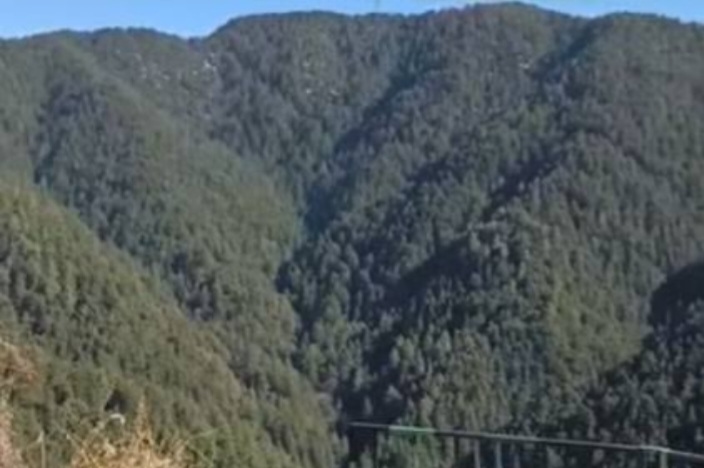Rs 18 Crore Glass Deck Project in Hassan Valley Hits Legal Wall: Govt Pushes Despite Wildlife Act Hurdle
Shimla: The state government’s ambitious Rs 18 crore glass viewing deck project in Hassan Valley near Dhalli has run into rough weather, with legal roadblocks under the Wildlife Protection Act threatening to derail it.
Yet, Deputy Chief Minister Mukesh Agnihotri seems determined to push the project forward, raising eyebrows over the government’s priorities.
Presiding over a meeting to review the project’s progress, Agnihotri directed officials to finalize the Detailed Project Report (DPR) within ten days and submit it to the Director of Tourism for administrative approval and expenditure sanction.
The proposed deck—spanning around 600 square meters and suspended by nine ropes—aims to accommodate 700-800 visitors at a time, promising to be a major tourist attraction.
However, what the government seems to be overlooking is that the project site falls within a declared Wildlife Sanctuary, where any construction is strictly prohibited under the Wildlife Protection Act.
To proceed, the government must seek forest land diversion clearance under the Forest Rights Act (FRA)—a process often marked by stringent scrutiny and lengthy approvals.
Despite these legal constraints, Agnihotri has directed officials to expedite forest clearance procedures, signaling the government's intent to push ahead regardless of the regulatory hurdles.
Supporting the project, Rural Development and Panchayati Raj Minister Anirudh Singh termed it an “iconic project” that would boost tourism in the Shimla circuit as it falls under his Kasumpti segment.
But conservationists and legal experts have raised red flags.
“Setting up a massive structure inside a wildlife sanctuary is a blatant violation of the Wildlife Protection Act.
The area is crucial for the local ecosystem and wild life and water conservation, and such construction will disrupt wildlife habitats,” said a senior environmentalist on condition of anonymity.
Critics argue that while tourism is essential, it cannot come at the cost of environmental degradation.
“The government seems more focused on attracting tourists than protecting its fragile ecosystems. The Wildlife Protection Act exists to prevent exactly this kind of encroachment,” added the environmentalist.
With the DPR nearing completion and the government pushing for swift clearances, all eyes are now on whether the authorities will get clearance under WLPA or uphold the sanctity of the sanctuary.
Either way, the outcome will set a precedent for future development projects in ecologically sensitive zones.




